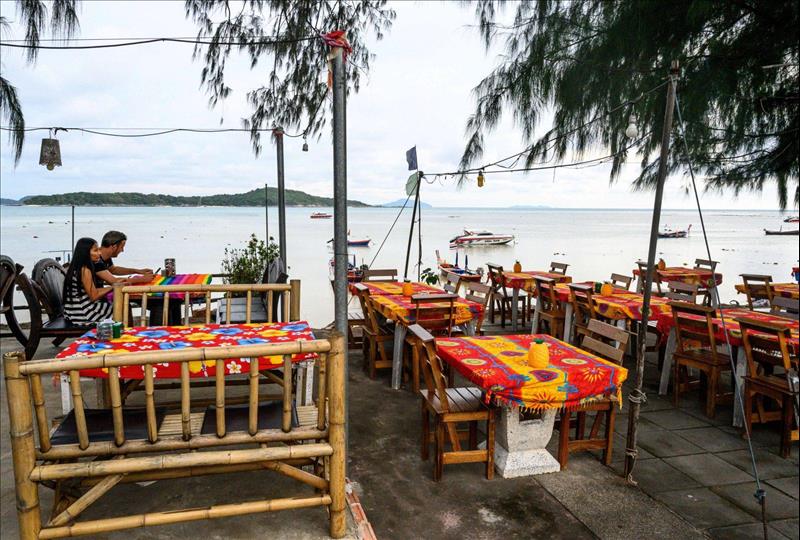
UNDP, OECD present corruption solutions for ASEAN
(MENAFN- Asia Times) In Southeast Asia, as everywhere else, Covid-19 has fundamentally disrupted business as usual. A damaging side-effect of the pandemic on companies in the region, especially small and medium-sized enterprises (SMEs), is the emergence of new corruption risks – the urgent demands of emergency procurement have lowered the bar on transparency and oversight, bringing in their wake new opportunities for corruption. This has been especially evident in the health sector.
Few companies have remained untouched. In a recent survey of 229 ASEAN companies conducted by the Organization for Economic Cooperation and Development (OECD), with support from the United Nations Development Program (UNDP), 58% of respondents felt that risks had increased because of the crisis, with corruption the most frequently cited concern.
Wise local companies are looking for new safeguards to protect their business integrity. According to the OECD survey, nearly 40% of respondents intend to tighten up their business integrity policies, investing in third-party due diligence, internal audits, and training both internally and for companies in their supply chains. 57% of respondents said they would appreciate guidance, training and standards on corruption risk assessment processes.
As a response to this need, the OECD has launched a 'Self-Assessment Tool for Corruption Risk Assessment Processes' built on key national and international standards. The Self-Assessment Tool is designed for SMEs to identify areas of improvement in their corruption risk assessment processes.
Ultimately, anti-corruption initiatives only really work if the people they are supposed to benefit engage in them. This means a broader culture change.
At the heart of the necessary social transformation is 'collective action,' a term more pointedly used among anti-corruption advocates to denote policies and practices whereby governments, business and civil society find common solutions to the problem of corruption.
This Wednesday, innovative collective action initiatives in the Asia-Pacific region will be under discussion at the OECD Business Integrity Roundtable on Asia-Pacific.
The UNDP's Promoting a Fair Business Environment in ASEAN (FairBiz) Project and the OECD's Southeast Asia Anti-Corruption and Business Integrity (SEACAB) Project, both supported by the UK Prosperity Fund, have been working with local partners to set up collective action programs in the region. The measure of their success will be the impact on reducing corruption.
In 2019, 30 young entrepreneurs from the UNDP's Youth Co:Lab program co-created a Business Integrity Toolkit for Young Entrepreneurs. It targets early-stage startups, the businesses of the future. Since then, it has been accompanied by an offering of inspiring trainings and mentoring provided by local incubators and is showing signs of being a real driver of change throughout Southeast Asia.
Similar trainings aimed at companies in the supply chains of global multinationals and women-led enterprises are being developed in Malaysia and Thailand. Whether learning and training converts to sustained changes in behavior remains to be seen. The hope is that it does, of course.
In Indonesia, the UNDP's partner the Infrastructure Transparency Initiative, or CoST, has been working with the National Public Procurement Agency (LKPP) in Lombok to make public procurement data available to civil-society groups for monitoring purposes.
In Thailand, the Ministry of Finance has used the CoST methodology leading to savings of approximately US$360 million in public infrastructure investments. A similar project in Thailand, initiated by a local non-governmental organization, Anti-Corruption Thailand, is using Big Data analytics to monitor the government's Covid-19 economic stimulus package.
These novel approaches not only expose wrongdoing when it occurs, but just as importantly take the 'glass half full' approach and raise companies' confidence and trust in government contracts with the knowledge that civil society is watching them with fresh eyes.
In Vietnam, the OECD's and UNDP's local partner, the Vietnam Chamber of Commerce and Industry (VCCI), has launched several business integrity trainings for SMEs, unpacking the new anti-corruption legislation.
A Government-Business Integrity Initiative ensures that regulators and companies maintain a regular dialogue to discuss the legislation and its impact on business. One-off actions rarely make a dent, but this sustained effort and open engagement is gaining headwinds.
New technology will play a big part. The OECD survey results demonstrate that the accelerated application of technology, driven by the pandemic, has presented businesses with some challenges. However, if used effectively, enhanced technology applications can enable companies to reduce their exposure to corruption.
In the world's most advanced companies, artificial intelligence (AI), Blockchain and Big Data analytics are going beyond traditional compliance, audit, risk management and security functions. As the technology's predictive capabilities develop, its application are moving from detection to prevention. These new technologies are revolutionizing corporate adaptive and learning behavior.
Powerful automation and predictive technologies could help smaller companies as well, to overcome their current resource limitations and be more resilient to shocks, from pandemics to cyberattacks.
Local governments across the region represented by the Association of Southeast Asian Nations have accelerated their adoption of new technologies. The intensified application to emergency health procurement, is an example, where there has been significant public benefit with new and larger spaces for fair business competition.
And this is the new commitment to business integrity that we are looking for and supporting across governments and business in Southeast Asia – where the greater public benefit is in the best interest for everyone involved.
The OECD Business Integrity Roundtable 'Business Integrity Trends in Asia-Pacific – Beyond the Covid-19 Crisis' will be held on March 31. For the agenda, click here .

Legal Disclaimer:
MENAFN provides the
information “as is” without warranty of any kind. We do not accept
any responsibility or liability for the accuracy, content, images,
videos, licenses, completeness, legality, or reliability of the information
contained in this article. If you have any complaints or copyright
issues related to this article, kindly contact the provider above.


















Comments
No comment